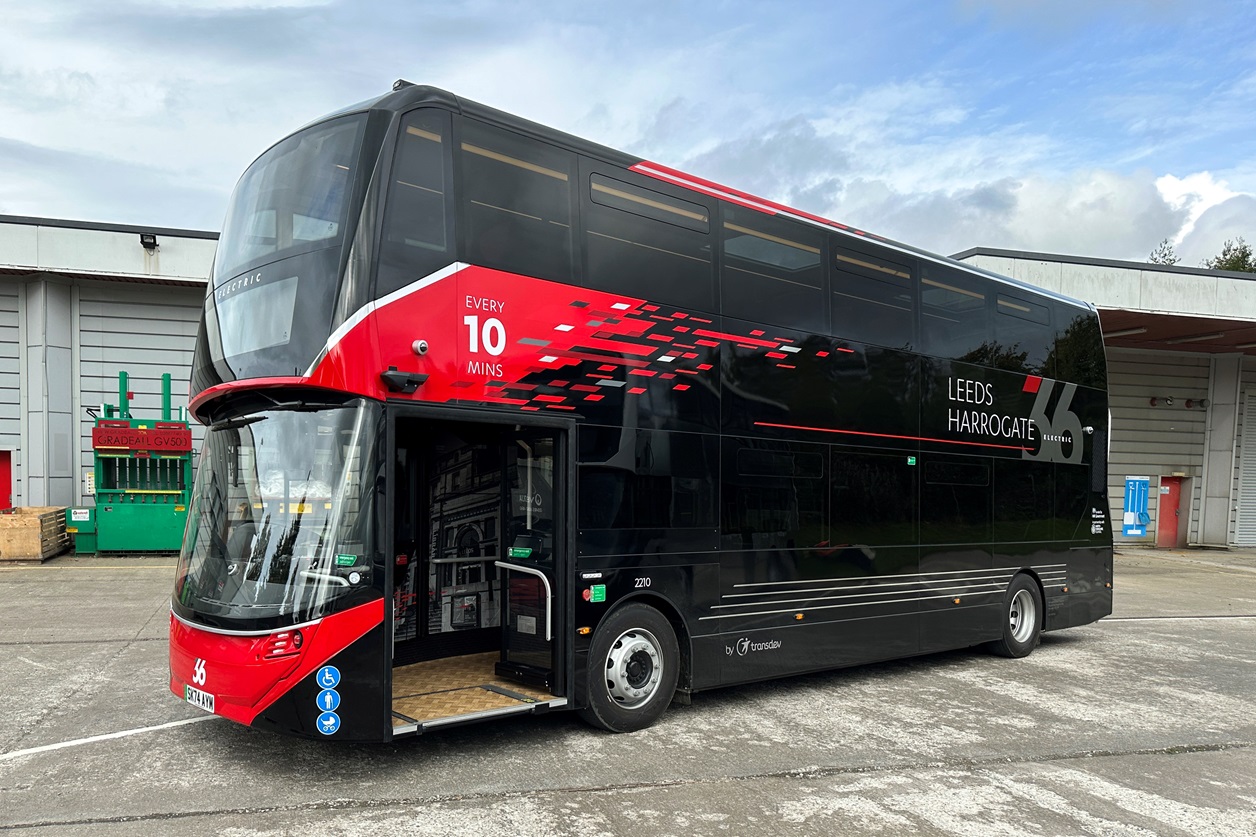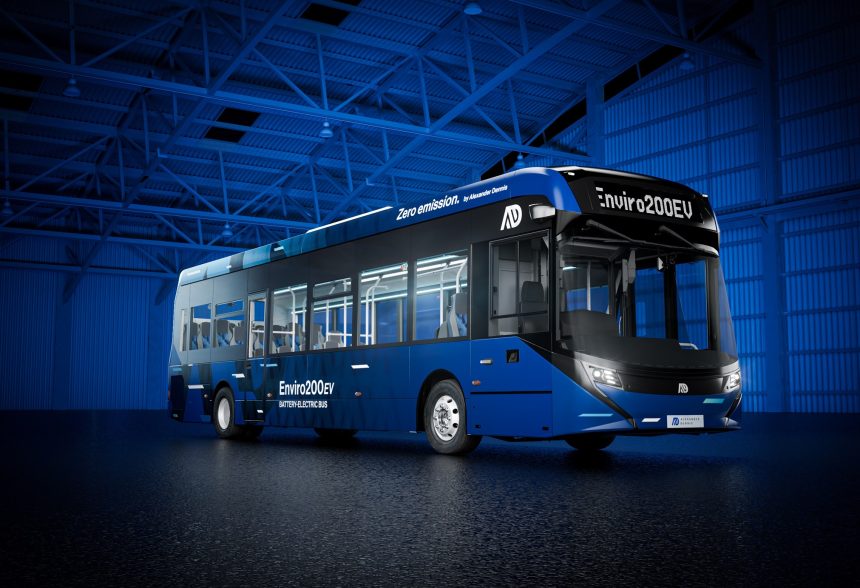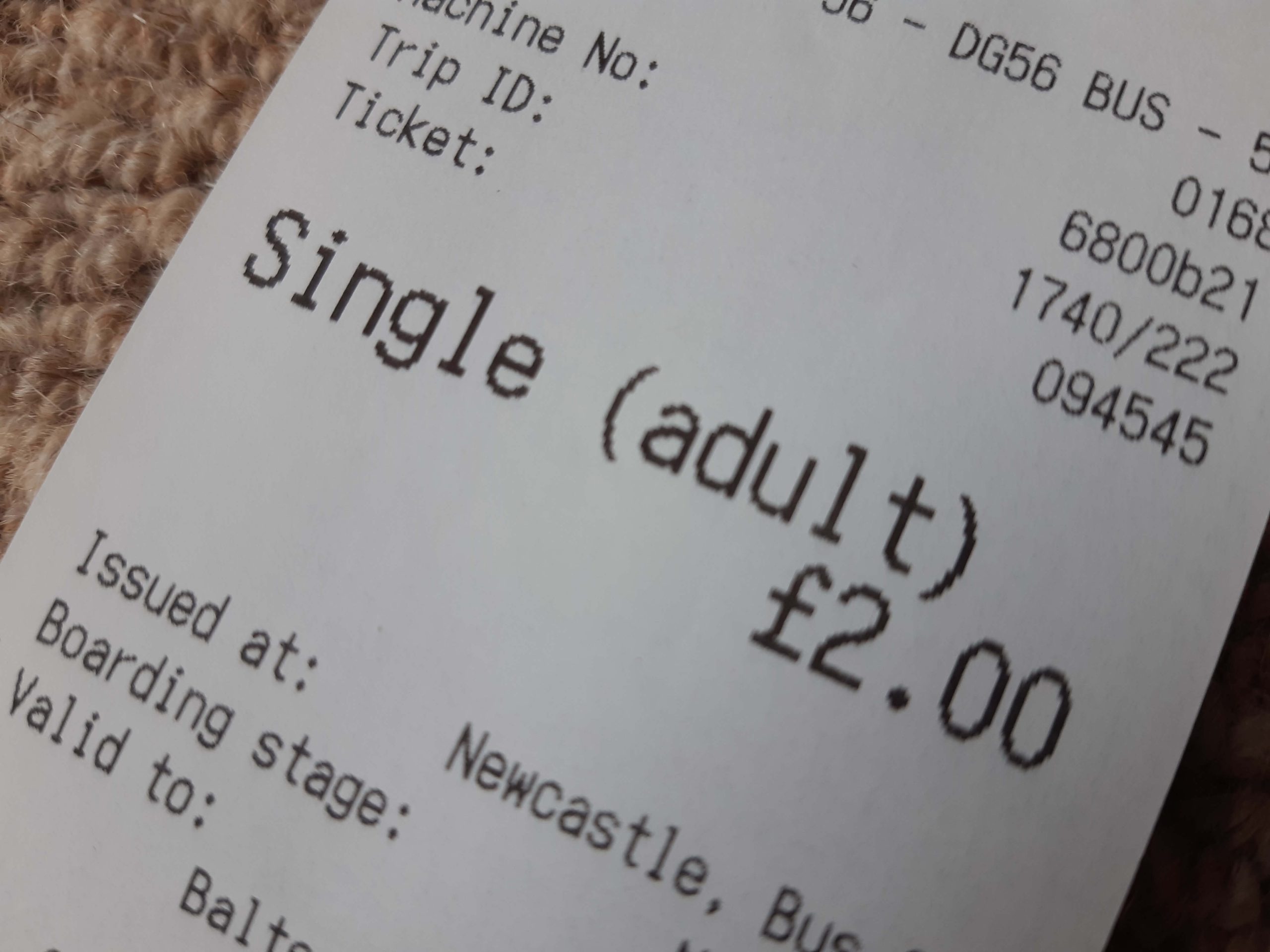Alexander Dennis has revealed details of its next-generation Enviro200EV battery-electric single-decker ahead of a discovery theatre for the model on the manufacturer’s stand at Euro Bus Expo on 12-14 November.
The Enviro200EV is on track for launch in the metal during 2025. Engineering Director Chris Gall describes it as completing the Alexander Dennis portfolio for battery-electric buses in the UK. Launch customers are already identified and the Enviro200EV will build on the success of the longstanding Enviro200 diesel platform, he says.
To that end, the Enviro200EV will be available at lengths of 9.9m, 10.9m and 11.7m for provincial usage and with a 10.4m option in Transport for London (TfL) specification alongside the other lengths to TfL configuration. It will be 2.47m wide, with Mr Gall noting that Alexander Dennis has maximised the wheelbase to leverage the low-floor area.
Up to 43 seated passengers will be carried and with a maximum overall capacity of 92. The builder says that the latter figure represents an increase of up to 22 over some competitors. The TfL buses will peak at 34 seats and carry a maximum of 78 passengers at 11.7m.
GVW of the Enviro200EV will be 17,200kg, allowing use of smaller wheels than on a full-weight bus. The manufacturer has majored on a lower height and lighter structure that it says delivers a 1,800kg saving over heavyweight competitors.
400kWh of energy storage from CATL will be included. Unlike the existing Enviro100EV and Enviro400EV models from the next-generation Alexander Dennis range, the Enviro200EV will use lithium iron phosphate chemistry.
Those other vehicles utilise lithium nickel manganese cobalt oxide technology. The change is thanks to what Mr Gall says is “more real estate on the roof” of the Enviro200EV and a resulting removal of the need on the Enviro100EV and Enviro400EV to tightly pack batteries. Up to 1.4GWh energy throughput over 10 years will be warranted on the Enviro200EV.
Power will be taken via the Voith Electrical Drive System. In standard from that will be used in its medium-duty iteration, but an option exists for the Enviro200EV to gain the heavy-duty traction package where higher-speed or more demanding usage cases are in play. Opportunity charging compatibility forms part of the model’s design.

Mr Gall adds that a focus for development of the Enviro200EV has been on the passenger experience, work from which will roll out on the other battery-electric buses in due course. He says that the manufacturer has aimed for “a premium and contemporary interior,” with warmer tones and styling lines that match the exterior.
A key area for that has been the door and platform, while saloon noise, vibration and harshness has also come under the microscope. That has built on work on the Enviro100EV and Enviro400EV but with tougher targets for the latest member of the in-house battery-electric range.
Saloon air-conditioning is fitted to the Enviro200EV, as it is the other two models. Alexander Dennis President and Managing Director Paul Davies adds that the manufacturer expects a good reduction in energy consumption for the new vehicle over heavyweight competitors and that it will deliver a total cost of ownership (TCO) benefit.
Mr Davies points to Zemo Partnership test results for the Enviro400EV as an indicator, which under closely controlled conditions have confirmed it as the most efficient battery-electric double-decker on the market with a return of 0.67kWh per km. He adds that its charging efficiency of 97% is a contributor to its TCO.
Production location for the Enviro200EV remains to be seen, but some could be built outside the UK. Mr Davies has been vocal on what Alexander Dennis believes is an unfair playing field for domestic bus manufacturers against those from lower-cost economies and he says that if Enviro200EV manufacture occurs elsewhere, it will be because of commercial pressures.
However, Mr Davies caveats that with an observation that the political outlook on domestic assembly may be changing, and that rollout of bus franchising is also driving a shift in attitudes. No decision has thus been made.
“It is something that we are still working through at the moment,” he explains. In reference to Enviro100EV bodyshells being built in China, that choice was made “on a needs-must basis because we have not had the signalling and the signposting from the government that what we do here in the UK is valued.”
However, national and local policy decisions will influence the manufacturer’s strategy. “It is much simpler for us to build in the UK,” Mr Davies continues. “But we have not had the confidence or the signposting from government at this point that that is worth anything.
“We work in a very commercially competitive environment. We have got to be sustainable as a business. That ultimately guides our decision-making.” He adds that Alexander Dennis is keen to discover more about the recently-announced UK Bus Manufacturing Expert Panel, announced by Secretary of State for Transport Louise Haigh on 8 October.



























